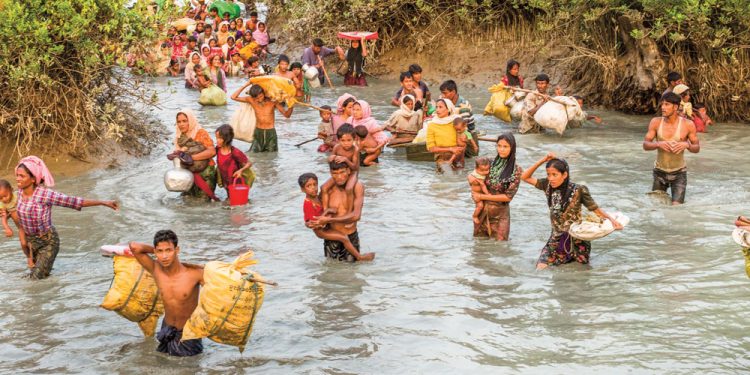The Rohingya are a Muslim ethnic group that is not recognized among the 134 official ethnicities of Myanmar. About 800,000 Rohingya reside in Myanmar today, with over 80 percent of them in the western state of Rakhine. Despite their large numbers and overwhelming evidence that the Rohingya have been in Myanmar for centuries, the government of Myanmar treats them as if they were immigrants from neighboring Bangladesh. Having been denied citizenship, the Rohingya have been left to wallow in the myriad problems resulting from statelessness, rendering them unable to marry, travel or even seek medical treatment without official permission.
Perhaps the worst part of the plight of the Rohingya is the forced relocation, resulting in an internally displaced persons (IDP) crisis. At this point, over 150,000 people are crowded into just 12 refugee camps. Conditions in the camps are deplorable and people cannot leave to seek work. The government has even been accused of purposefully denying access to humanitarian aid groups seeking to help the Rohingya while people continue to die of starvation and malnutrition every day.
Will the world finally intervene to stop this situation from getting any worse? Probably not. The only justifiable reason to intervene in matters of another sovereign state is to protect the interests of those being abused by their government. Sadly, this has meant that the international community will not even think about intervening until accusations of genocide are declared. The international community, understandably so, is hesitant to use the term ‘genocide’ without irrefutable evidence that genocide is truly taking place. Often times, this means that problems of genocide are not recognized until it is far too late.
How can you prove intent to destroy an entire minority until that minority has already been destroyed? This is a question that people must constantly work towards solving. There is no doubt that the Myanmar government mistreats the Rohingya. The United Nations even considers them one of the most persecuted minorities in the international community; however, what is happening to them does not amount to genocide — not yet, at least. For that reason, the world will continue to sit on its hands and watch this tragedy unfold.





